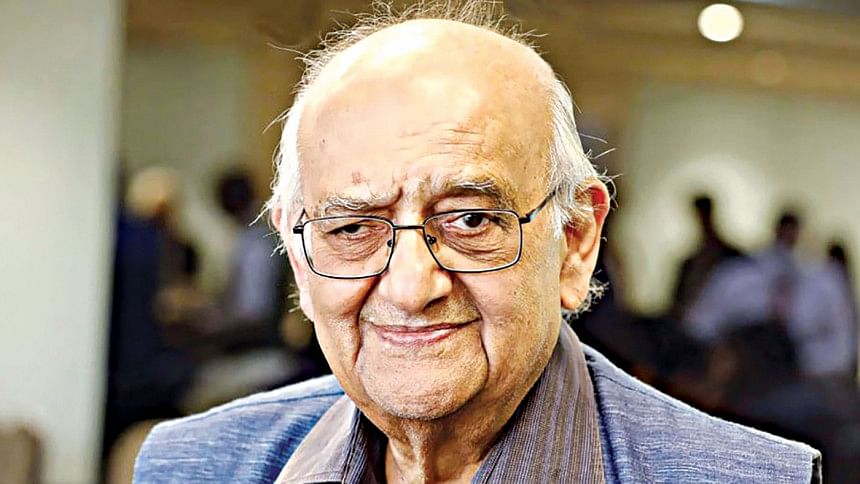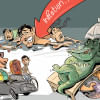A ‘very unequal society’ looms

Eminent economist Prof Rehman Sobhan thinks Bangladesh in the next 10 years will be a very unequal society even though the economy could be diversified and better off in terms of aggregate.
He said this at a conversation marking the launch of two volumes of his autobiography: Untranquil Recollections.
The University Press Limited, which published the books, held the event at its office in the city yesterday.
Prof Sobhan spoke about the books that contained his life stories of upbringing, education, transformation and engagement in public policy of Bangladesh and pre-independence era.
A member of Bangladesh's first Planning Commission and a close aide to Bangabandhu Sheikh Mujibur Rahman, he candidly discussed how he developed socialist democratic values during his education in London and then decided to settle in the then East Pakistan and work for the people.
Responding to a question as to how he sees the economy in the next 10 years, Prof Sobhan said, "So, it is the economic power that equals political power. Political power is being used to perpetuate economic power -- that is the nature of society, which is actually very contrary to the vision of Bangabandhu."
He lamented that political debate has almost disappeared and that the policymakers rarely go deep into the issues of public interest.
"The ministers react to the headlines when journalists want reactions, instead of having details of any issue," he said.
Asked if he has any advice for the policymakers, the economist, who was involved in preparing the Awami League's manifesto for the 1970 general elections, said the political leaders and policymakers should get advice from as diverse sources as possible.
"In fact, my experience in Bangladesh is that the best advisors for any government would be its critiques."
Prof Sobhan, now chairman of the Centre for Policy Dialogue, said the advice that the policymakers get from within the government can often reinforce the mistakes and be misleading.
"Provided that you have constructive and serious critics ... you will learn a lot and it will help improve policy."
However, he said, "The problem of critiquing your critics or disagreeing with your enemies is, I think, one of the biggest tragedies in Bangladesh."
Prof Sobhan said that in the days before the independence and after the independence, Bangabandhu and many other Awami League MPs would regularly get briefings from him and other experts.
"Bangabandhu was politically a very conscious leader. He was a leader of the masses and knew their pulses. He would take political decision but would not forget to consult the experts," he said.
In today's Bangladesh, he said, there is a deficiency both in terms of demand and supply when it comes to consulting the experts or academics on any field.
Economist Aktar Mahmood moderated the conversation.

 For all latest news, follow The Daily Star's Google News channel.
For all latest news, follow The Daily Star's Google News channel. 









Comments